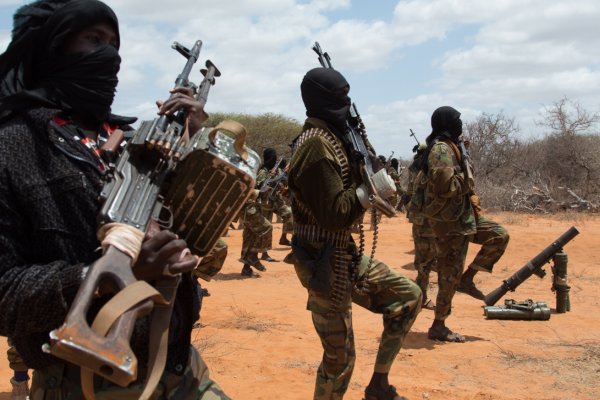Kenya beefs up security at porous Somalia border

- Officials said more others are on the run, adding that the deployment of more personnel is aimed at stopping “bad elements” from getting into Kenya.
- Security officials said there are tens of other terrorists, mostly foreigners who are on the run to escape the latest operation.
Kenya has increased security agents along the porous Somalia border in anticipation of the arrival of fleeing al Shabaab returnees.
This follows an ongoing crackdown against terrorists in parts of Somalia.
Officials said more others are on the run, adding that the deployment of more personnel is aimed at stopping “bad elements” from getting into Kenya.
Security officials said there are tens of other terrorists, mostly foreigners who are on the run to escape the latest operation.
Officials said they fear more arrivals after the authorities called for a major rally at a Mogadishu stadium on January 12 where president Hassan Sheikh Mohamud will announce the launch of “Mogadishu Peoples Uprising” against al Shabaab during the rally.
All government workers have been ordered to attend the rally and participate in the uprising.
Somali Prime Minister Hamza Abdi Barre announced Wednesday the federal authorities have closed down 250 bank accounts and 70 mobile money accounts used by the al Shabaab militants.
Blocking al Shabaab’s financial flow was one of the strategies announced by president Mohamud when he was re-elected last year.
Senior security officials said Kenya had taken more officials to strategic places in anticipation of the arrival of fleeing terrorists.
“It has been coming and we are preparing the ground. Few have arrived and captured even as we anticipate more,” a senior official aware of the plans said.
On Wednesday, President William Ruto blamed the endless armed conflict and civil strife in neighbouring countries for the rise in illicit firearms among pastoral communities.
Kenya has been a victim of terrorism orchestrated by the terror group many times, the latest being on Wednesday along the Bura-Garissa road where an explosive set by the terror group killed four workers.
The Mogadishu rally is the first major protest against the group, which has been oppressing civilians and security forces for over 15 years.
Thousands of progressive forces are expected to line up in the streets of the capital Mogadishu on Thursday where they are expected to declare a major war against the militants.
The government has been working closely with residents in the ongoing assault against the Al-Qaeda-linked group.
In central and southern Somalia, residents have mobilised against al Shabaab with the famous Macawisley militia leading from the frontline.
The militia has been fighting alongside the Somali National Army (SNAI), the African Union Transition Mission in Somalia (ATMIS), and US Africa Command.
President Mohamud recently reported that over 500 militants have been killed through joint efforts as the military seized several “strategic” towns across Somalia.
In the process, the close collaboration between locals and security forces has seen several militants, mostly youths surrender to government forces, as some claimed that they joined the group after being “misled”.
The government is repatriating those who have bolted out of the terror group.
To fast-track the objectives of the uprising, the government has mobilized all civil servants to turn up in the streets and join the masses.
The country is finding ways of directly involving civilians in the fight against extremists who are hell-bent on toppling the fragile UN-backed federal government.
The president says al Shabaab will not be defeated through a military approach alone, adding that there is a need to invest in the ideological front.
This week, the government denied claims that it was intending to negotiate with the militants, concurring with the group, which also refuted the allegations.
Officials say the group has scaled down recruitment following a sustained crackdown against them on all fronts.
Intelligence reports also indicate that foreign fighters are ditching the group and are looking for exit points to avoid arrests or deaths.
The United States recently increased rewards for people who would give tips at al Shabaab’s revenue collection centres.
Both the government of Somalia and its partners have unanimously agreed to target sources of revenue to further cripple the group.
It is projected that al Shabaab can raise over $100 million from local revenue and well-wishers, with the majority of the share going to the purchase of weapons.
The group has been destroying oil wells, communication facilities, and other essential infrastructure to further frustrate a determined local population that is taking arms against them.
It lost its main centres to government troops and it is projected that the internal leadership crisis between Abu Ubaidah and Mahad Karate will cripple it further, officials aware of the trends said.
Kenyan troops are in Somalia to help in fighting al Shabaab terror group.
The troops went to Somalia in October 2011.
Kenya’s incursion into southern Somalia started after the kidnapping of two Spanish women, who were working for MSF at the Dadaab refugee camp.
The abductions were carried out by the militants who the troops planned to push away under Operation Linda Nchi.
Two years later, the troops managed to take control of Kismayo port under Operation Sledge Hammer.